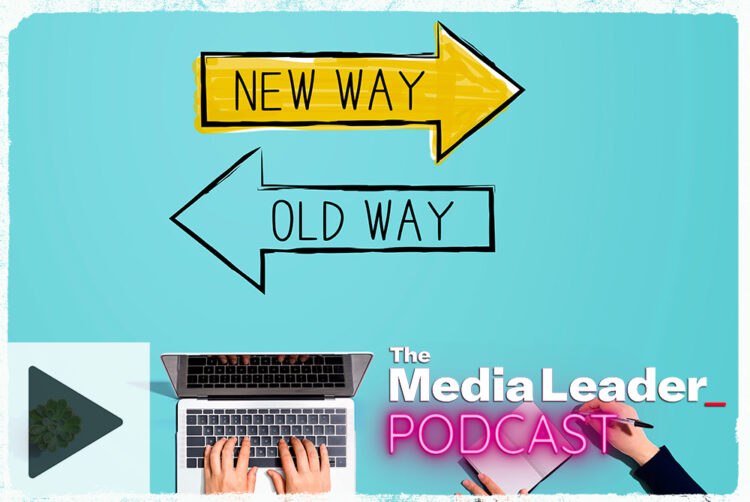Why the market ‘can’t sustain’ agencies of record

The Media Leader Podcast
The way agencies pitch for advertising and media accounts has become “misaligned” with the market’s increasingly flexible approach to partnerships, according to an industry consultant.
Caroline Johnson, director and co-founder of The Business Model Company, spoke to The Media Leader about why media agencies are no longer fit for purpose and need to get rid of charging models based on employees’ time.
Johnson, who has advised businesses on changing their operating model away from traditional time-based charging, argues that the market can no longer sustain “the idea that you need to pitch and become an agency of record or media partner of record” for very large clients.
She warns that advertisers are adopting much more flexible systems for working with various marketing services partners, meaning agencies need to adapt.
Listen to an excerpt or read an edited transcript below:
Transcript
The Media Leader: When you talk about the process for when agencies pitch for business RFPs [and] going into actual pitch, why is that model broken? In your view, what’s wrong with it?
Caroline Johnson: I think there are two reasons. One, we’re in the wrong revenue model. And the revenue model that we think we’re in isn’t viable any more.
So the pressure is on the pitch system to be able to win and sustain large chunks of revenue every year. The reason I say that’s outdated now is we’re moving much more into what I’d call a “project economy”, with the fragmentation of everything.
And the way that brands and advertisers actually want to engage and contract is a lot more flexible and fluid than it’s ever been. So the idea that you need to pitch and become agency of record or media partner of record for very large clients, and you need to do that across a number of clients every year — the market can’t sustain that model any more. It can’t give you that.
So what we need to do is learn how to adapt to where the market actually is. And that means a change in operating system and having more choice around different commercial models. But also this notion that you need to be able to offer clients the efficiency and effectiveness they want in a accelerated and agile way. And if you are equating your value to your effort, and I’m particularly referring now to the costing model of time-based charging: if there’s any rate card in there, what you’re valuing is your effort and pricing — how long it takes you to do something.
So it goes without saying that the longer you take, and the more people you can justify, the more money you make. That is absolutely misaligned with how your clients want you to engage and what they need from you. And also how they are working across multiple different specialists and partners.
So that misalignment to the current market, and the current way clients want to engage, is a real issue for our industry.
The Media Leader: It’s really radical, what you’re suggesting, because we’re talking about ripping up the entire way in which this industry does business — the media buying part of the advertising media ecosystem, which is so integral to how media has always been subsidised for 100 years. Are you suggesting one general paradigm way of working in which all media agencies should transition to?
Johnson: It depends. I’d say, as a general rule, that the media industry and media agencies are best suited to what I would call a “programme and product” model — being able to really design and deliver the programmes that their clients actually need, which have the right operating model and talent model to be able to deliver them really, really efficiently.
I think, with the advance of AI, that allows them to be able to imbue all of their programmes and products with relevant AI capability. And that also means that they can monetise that.
In that model, AI is your friend. In the time-based charging model, AI is your biggest threat. I think that’s quite an interesting way of thinking about it.
But the ability to to actually create the business model around your client’s needs, but also to elevate it to the highest level of value that you can create and realise for your clients.
There’s a misnomer that the business model debate in our industry is about: we need to charge more, we need to find a way of charging properly. I hear this all the time in the language.
Now listen to the full episode — hit subscribe to get future episodes where you listen to podcasts:
This conversation should be considered a companion to our episode in January with Ryan Kangisser at MediaSense, whose advertiser survey last year revealed significant dissatisfaction with media agency models.
Thanks, as always, to our production partners Trisonic for editing this episode.
Highlights
1:50: What The Business Model Company does and who it works with
6:20: Why are agency models challenged?
9:28: The way agencies pitch to advertisers is broken
14:25: Advertisers need to pay their agencies more
26:21: How AI can add value for agencies beyond replacing staff with machines
31:04: Agencies that are breaking the mould and future-proofing themselves
34:11: Aren’t all businesses suffering from information overload, especially in hybrid working environments?
43:09: Why Johnson is passionate about this industry
The Media Leader Podcast is a twice weekly show in which our journalists interview some of the most influential people in advertising and media, as well as the next generation of future leaders and rising stars. We also review the biggest stories in media and discuss our featured columnists’ latest opinion pieces.




